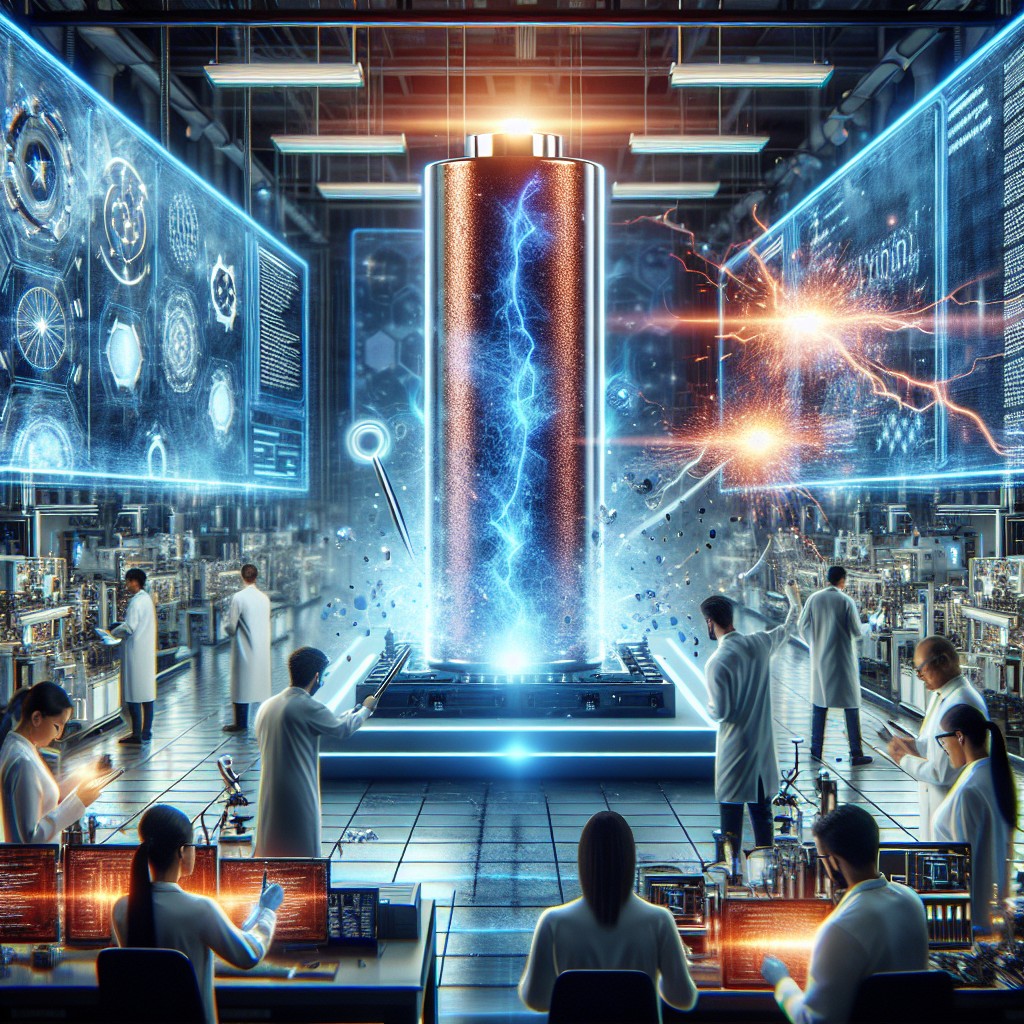In the realm of rechargeable battery technology, a significant shift is on the horizon. Current lithium-ion batteries, while efficient and long-lasting, are not without their environmental drawbacks, especially concerning their reliance on rare earth metals and recycling challenges.
In a groundbreaking collaboration, Microsoft and the Department of Energy's Pacific Northwest National Laboratory (PNNL) have unveiled a revolutionary material, poised to reduce our global dependence on lithium for battery production. This innovation was made possible through the use of advanced AI and Microsoft's Azure Quantum Elements cloud platform, transforming the typically slow process of researching synthetic materials.
Utilizing Microsoft's high-performance computing systems, AI algorithms adeptly predicted the properties of new materials—encompassing energy, force, stress, electronic band gap, and mechanical traits. By training these models with data from millions of simulations, the team achieved a staggering 1,500-fold acceleration in predicting material properties, compared to traditional methods.
The journey began with an extensive pool of 32.6 million potential materials. AI algorithms streamlined this to 500,000 stable candidates, which were then meticulously screened for functional properties, further narrowing the field to 800. The Microsoft Quantum team, using AI-enhanced simulations, focused on dynamic properties like ionic diffusivity to select 150 promising materials.
The collaboration leveraged AI's power, the Azure Quantum Elements platform, and scientific acumen, with Microsoft asserting that this approach could compress 250 years of materials science and chemistry innovation into a mere quarter-century.
Further practical analysis considering novelty, mechanics, and element availability led to the identification of 18 top contenders. With PNNL's additional insights, a final candidate emerged: an electrolyte material reducing lithium use by 70 percent, partially substituting it with sodium.
PNNL has synthesized this new material, with further tests planned to assess its stability and efficiency. Brian Abrahamson, PNNL's chief digital officer, emphasizes the global importance of developing innovative batteries. He notes the traditionally labor-intensive nature of synthesizing and testing materials, a process now revolutionized by AI.
Microsoft's integration of AI, Azure Quantum Elements, and scientific expertise signals a new epoch in technology's role in scientific advancement. The Redmond-based company envisions AI as a catalyst for unprecedented progress in every industry, ushering in a new era of scientific discovery.

Published on January 12, 2024
Revolutionizing Battery Technology: Microsoft's AI-Driven Breakthrough
Paving the Way for Eco-Friendly and Efficient Battery Solutions
Share This Article
More Articles You Might Like
Discover More Content
Explore our collection of articles across various topics and categories. From cutting-edge technology insights to wellness wisdom, we curate the best stories to expand your horizons.
Article ID: 341